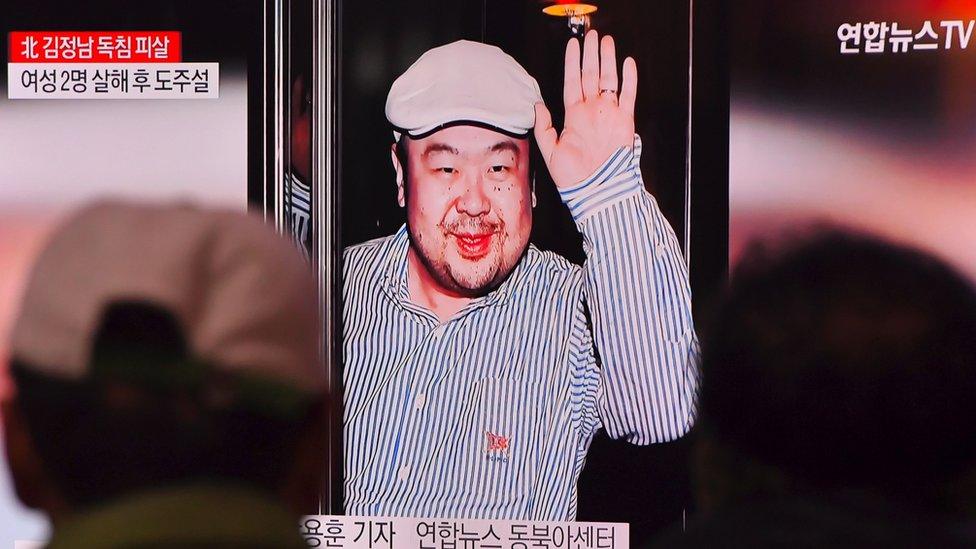Kim Jong-nam death: North Korean says arrest was 'conspiracy'
- Published
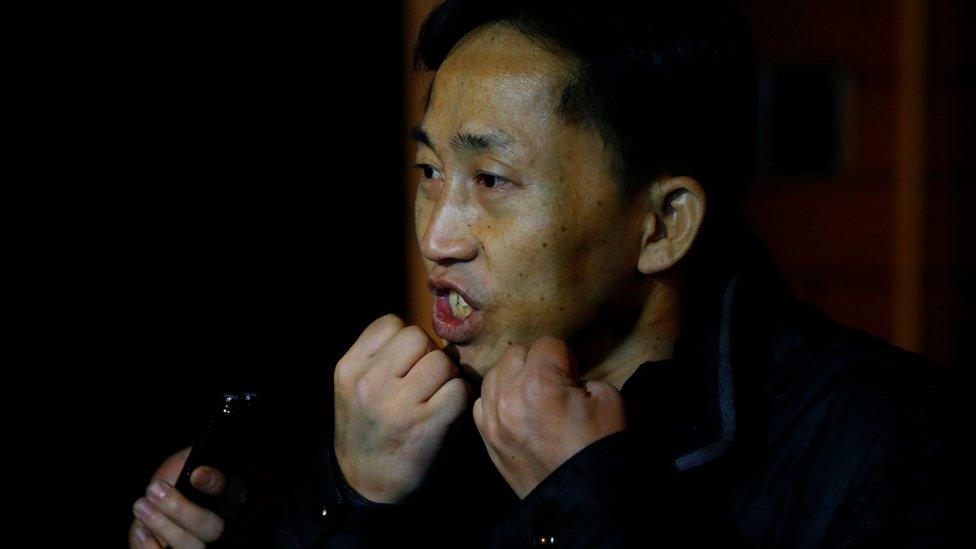
Ri Jong Chol arrived in Beijing early on Saturday
The North Korean suspect questioned in connection with the death of Kim Jong-nam has said he was the victim of a conspiracy by the Malaysian authorities.
Ri Jong Chol said his detention was a "plot" to "damage the honour of the republic", Reuters news agency reports.
He made the comments outside the North Korea embassy in Beijing after he was deported from Malaysia on Friday.
Ri Jong Chol was released from police custody due to insufficient evidence.
Speaking to reporters early on Saturday, he accused Malaysian investigators of using coercion in an attempt to extract a confession.
"If I just accept everything, they will make arrangements for a good life in Malaysia," Ri Jong Chol said, adding: "This is when I realised that it was a trap. It was a trap to bring down the reputation of my country."
When questioned about reports of a car discovered near the airport said to be registered in his name, he said: "It was in my car garage. Malaysian police accepted this too."
Ri Jong Chol admitted to investigators that he was an expert in chemistry, but said that he worked in Malaysia "importing ingredients needed for soap".
Malaysian authorities are continuing their investigation into the death of Mr Kim, the estranged half-brother of North Korean leader Kim Jong-un, who was killed with nerve agent VX at an airport in the country's capital, Kuala Lumpur nearly three weeks ago.
Ri Jong Chol, who said he was not at the airport on the day of the incident, was the only North Korean held in connection with the death.
Malaysia is seeking to question several North Koreans, including an embassy official.

Read more

Two women, Doan Thi Huong from Vietnam and Siti Aisyah from Indonesia, were charged on Thursday with killing Mr Kim by smearing his face with VX, a banned chemical weapon.
Both women said they thought they were taking part in a TV prank. They have yet to make a formal plea in their case.
Malaysia, which has condemned the use of the powerful nerve agent in the 13 February attack, is also investigating a firm thought to be used by North Korea to evade sanctions on military exports.
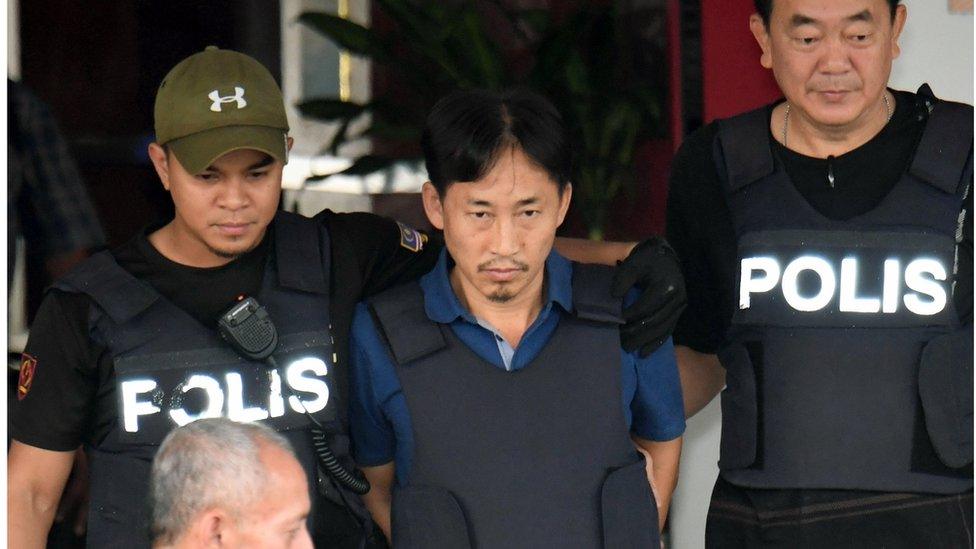
Ri Jong Chol was handed over to Malaysian immigration officials and deported on Friday
Ri Jong Chol had lived in Malaysia for three years but, according to Reuters, his work permit expired on 6 February.
Immigration director-general Mustafar Ali said Ri Jong Chol, who was escorted out of Malaysia by two North Korean embassy officials, was blacklisted from re-entering the country.
Meanwhile, the government said it had launched an investigation into a company called Glocom, which has been operating in Malaysia for several years.
According to a confidential United Nations report, Glocom is run by North Korea's top intelligence agency to sell military communications equipment, in violation of UN sanctions.
Why was North Korea's Kim Jong-nam killed?
Police said on Friday that an arrest warrant had been issued for 37-year-old Kim Uk-il, who works for North Korean national airline Air Koryo. He is believed to be still in Malaysia.
Reuters news agency reported that security checks on North Koreans had been stepped up at all border crossings to prevent them from leaving.
On Thursday, Malaysia announced it was cancelling visa-free travel for visiting North Koreans, citing security reasons.
It has not directly blamed North Korea for the attack, but there is widespread suspicion Pyongyang was responsible.
North Korea has strongly rejected the allegations. It also rejected the findings of the post-mortem examination, having objected to it being carried out at all, and has demanded the body be handed over to them.
It has not yet confirmed that the body is that of Kim Jong-nam, acknowledging him only as a North Korean citizen. Mr Kim was travelling using a passport under a different name.
- Published1 March 2017
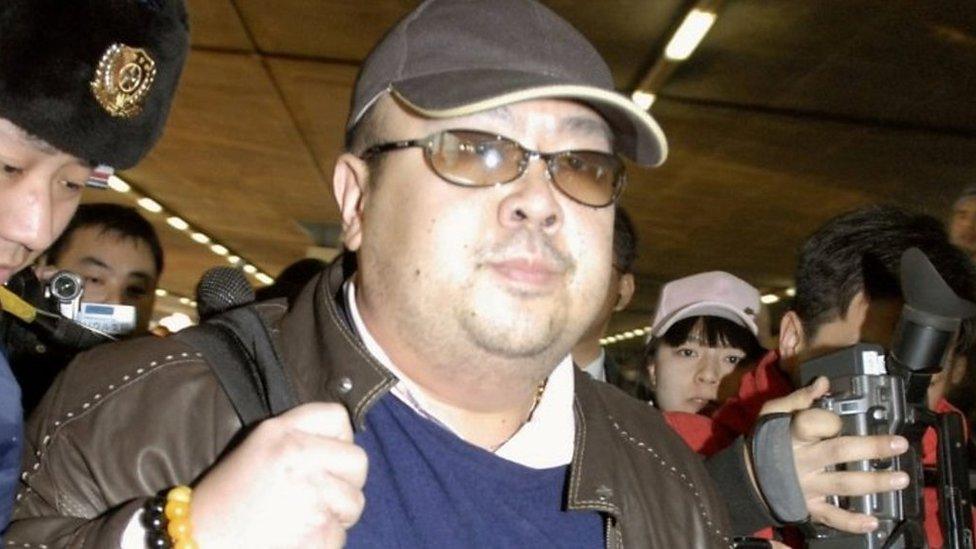
- Published26 February 2017
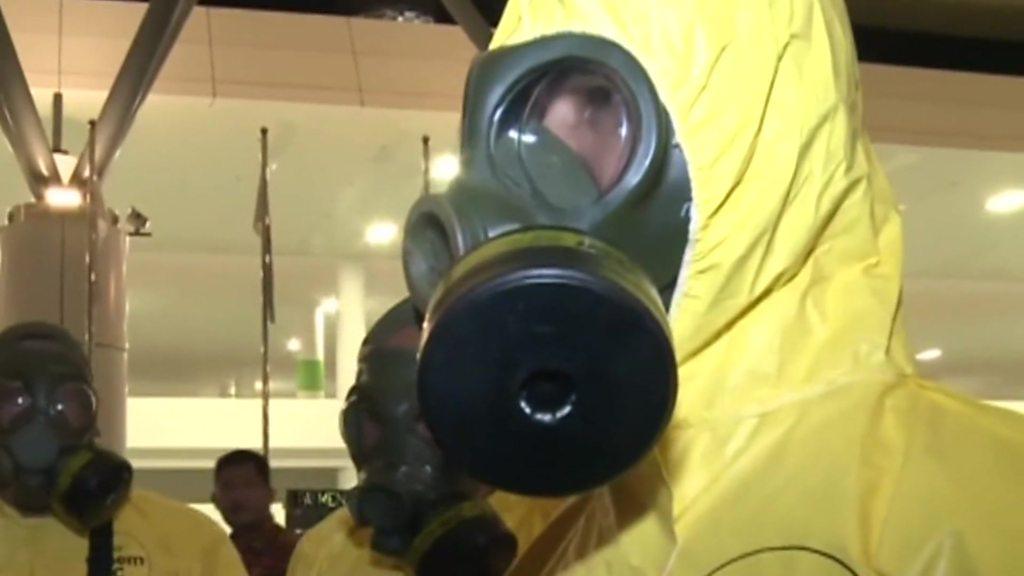
- Published27 February 2017
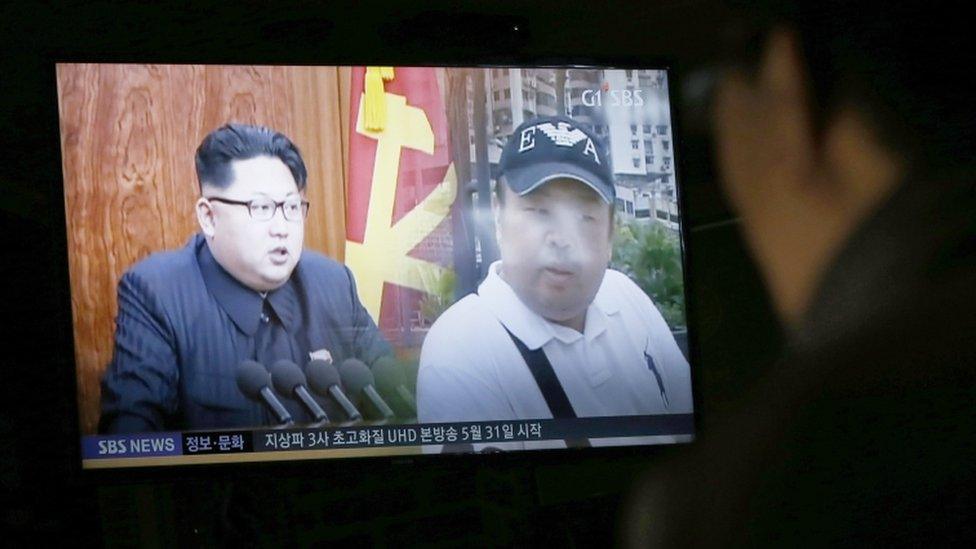
- Published25 February 2017
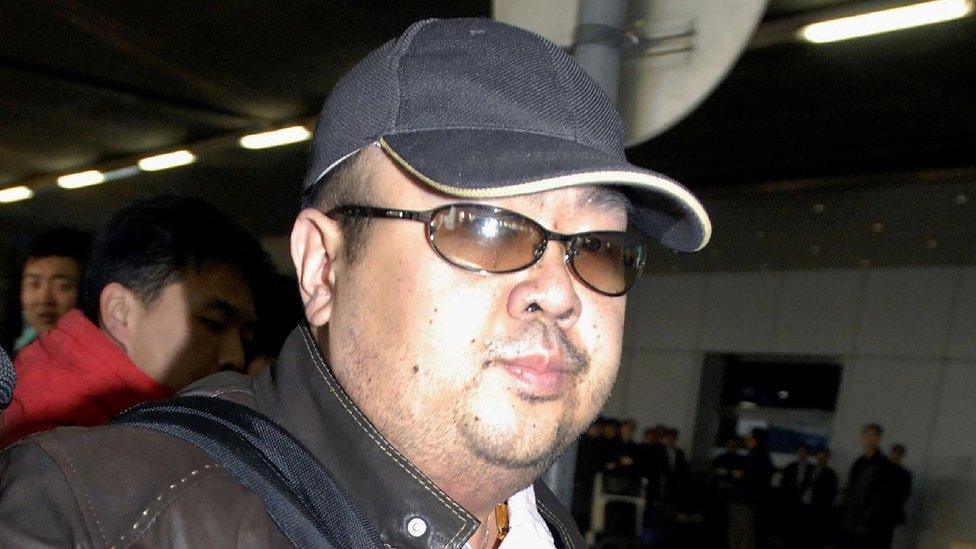
- Published24 February 2017
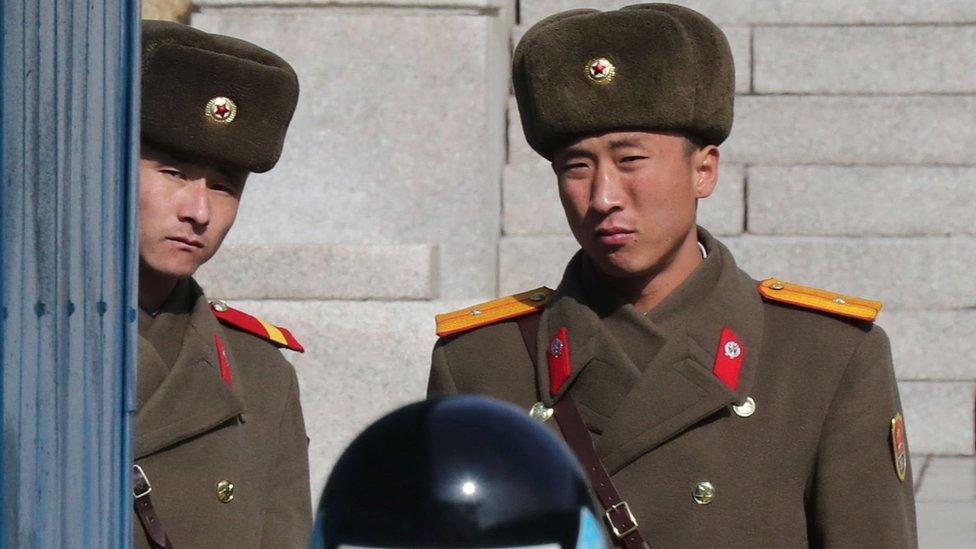
- Published2 October 2017
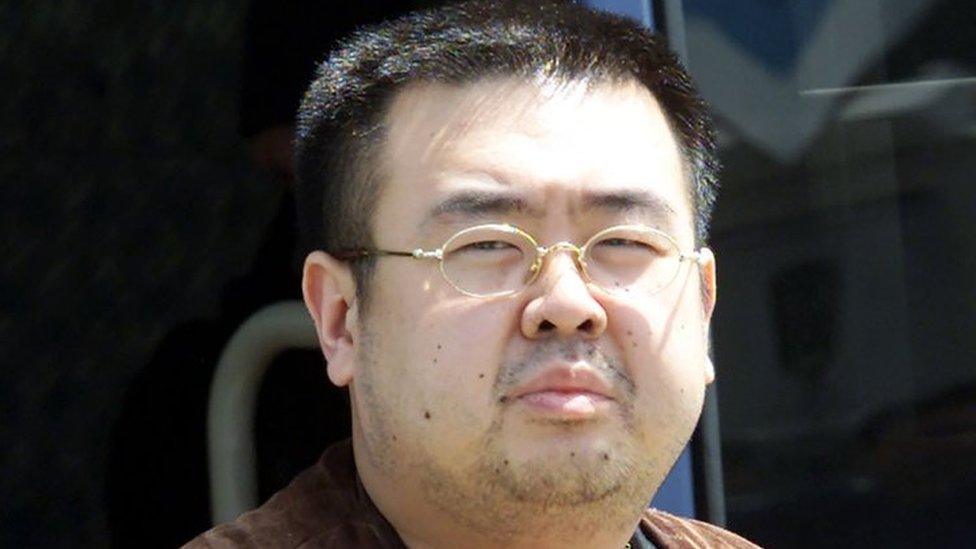
- Published15 February 2017
